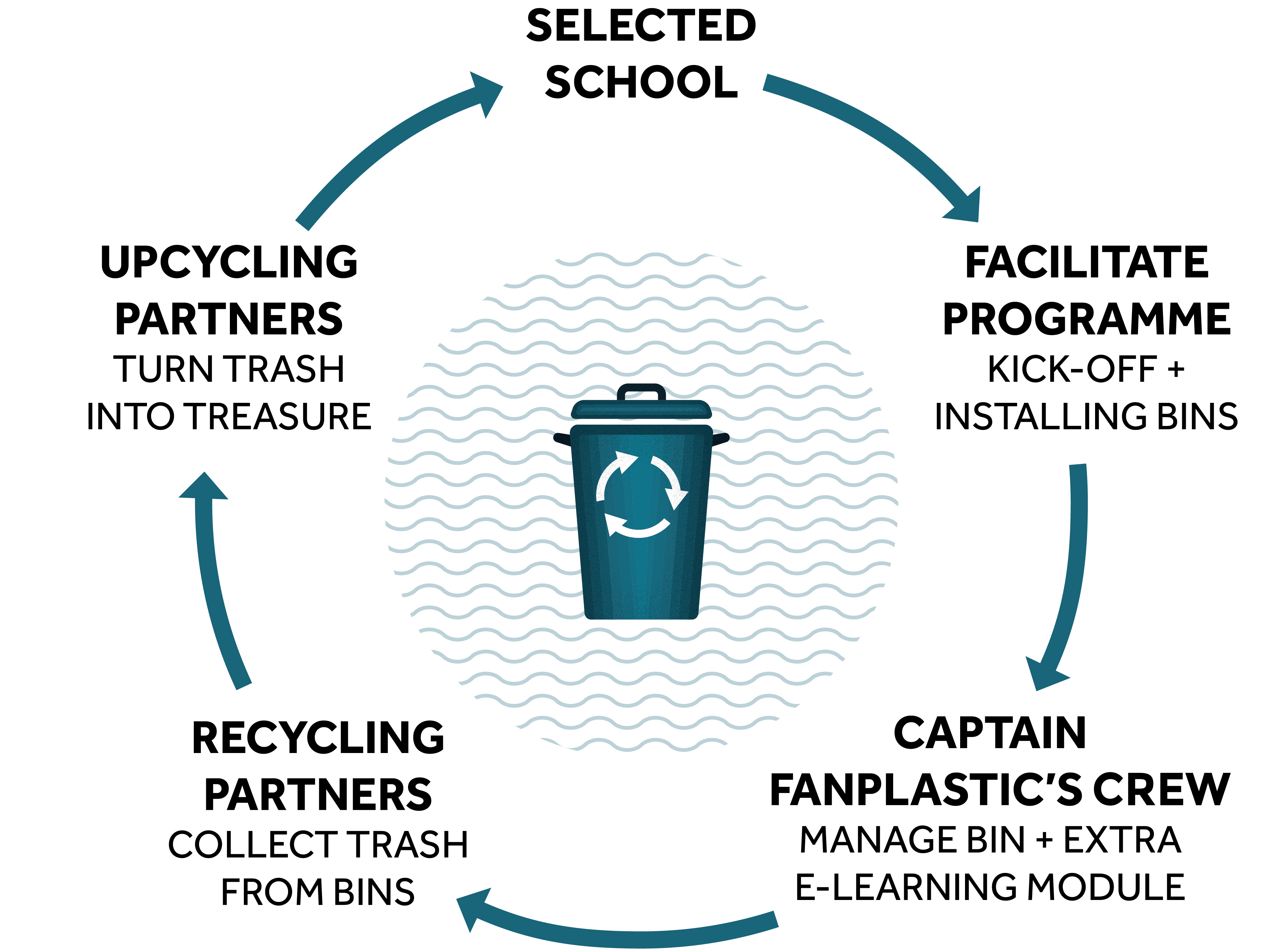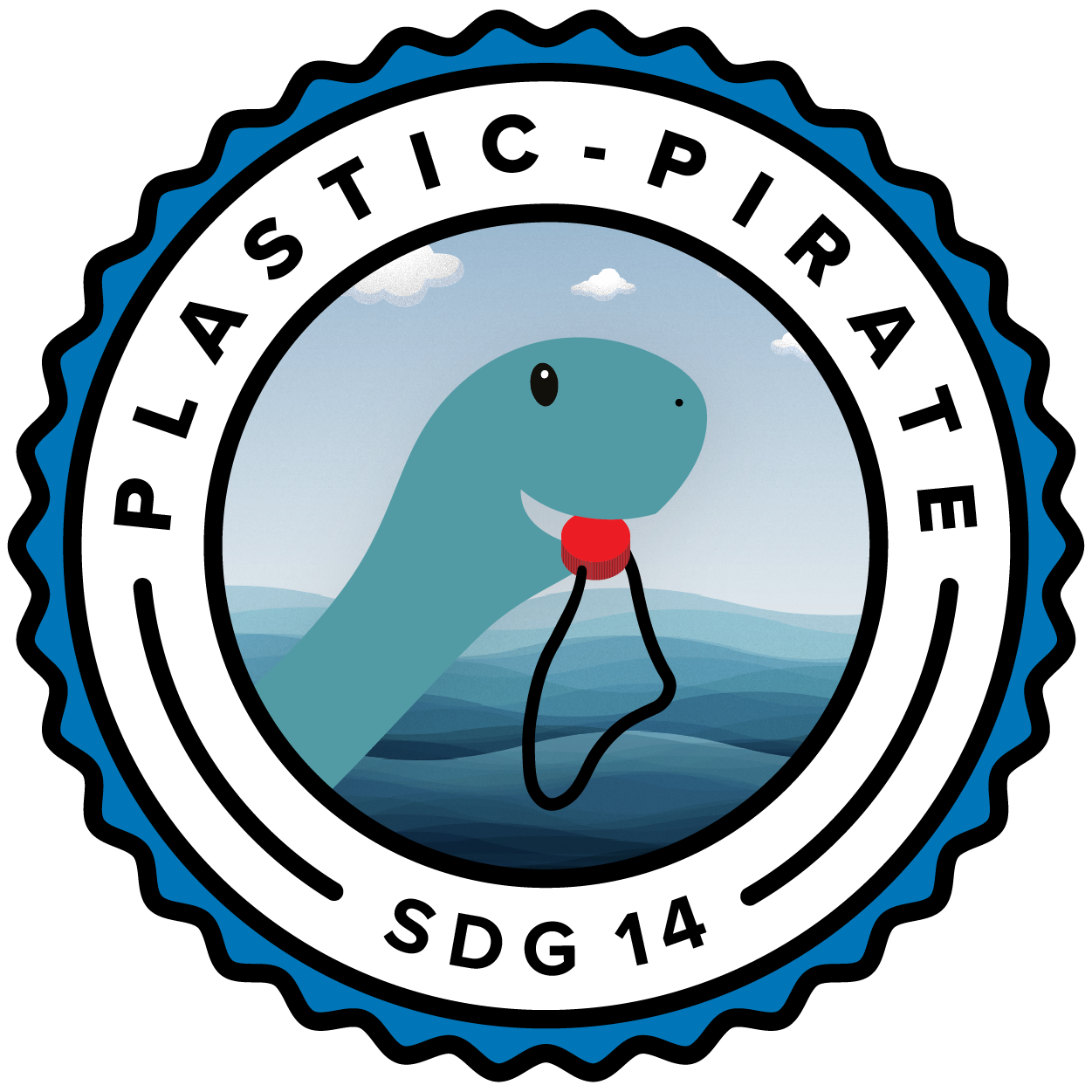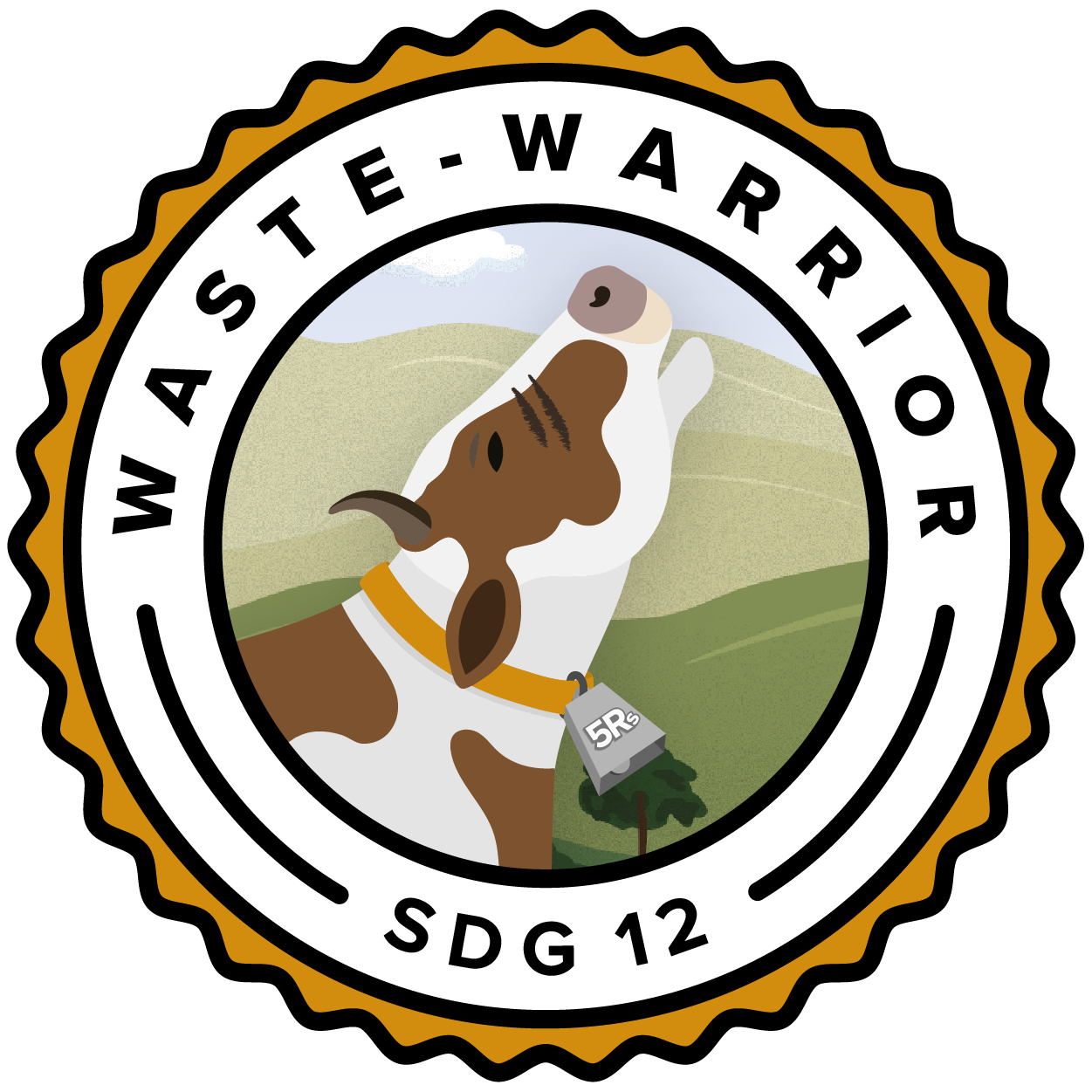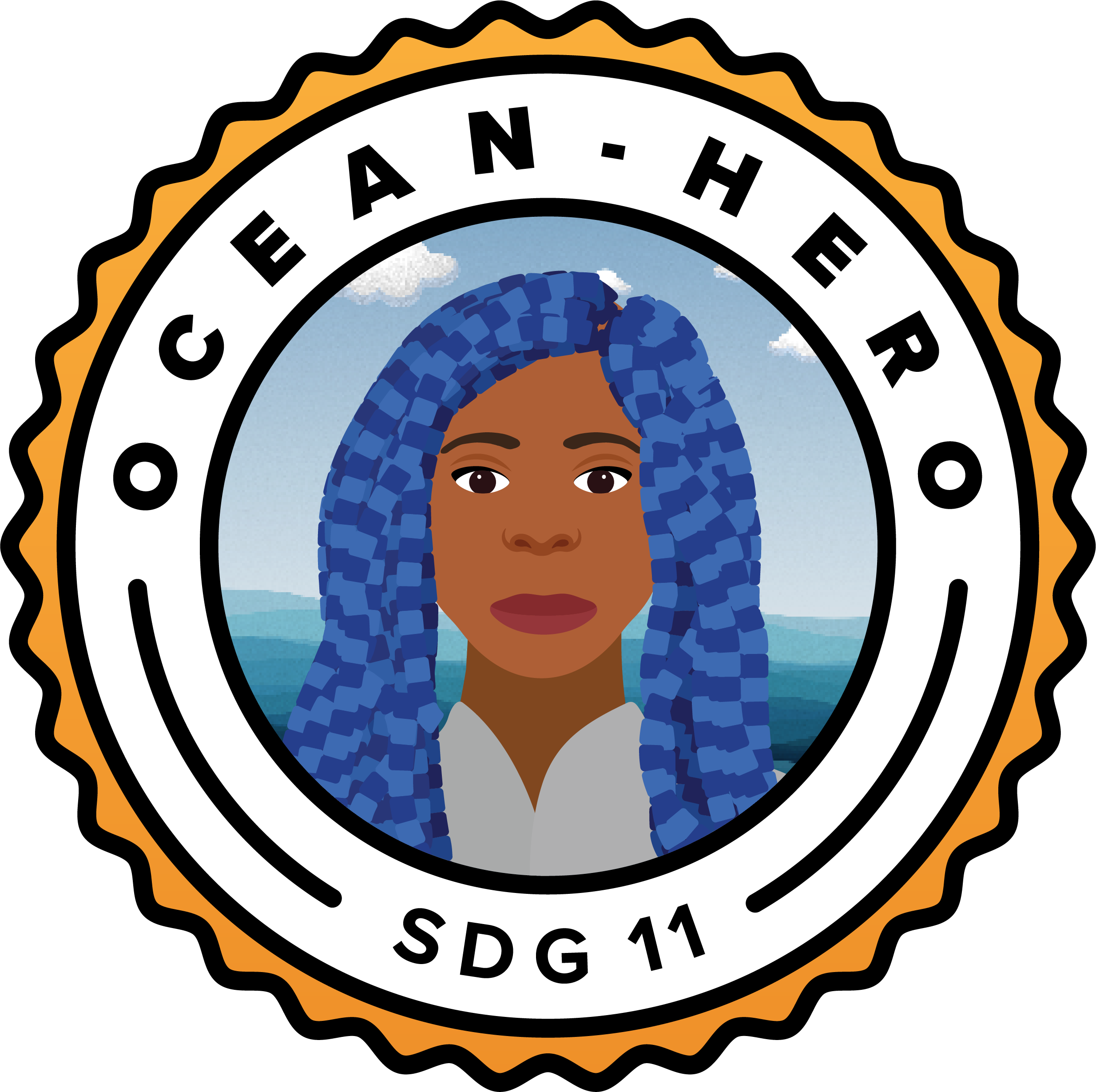our
Theory of Change
Captain Fanplastic positions under-resourced public schools in townships, peri-urban & semi-rural areas in the centre of our impact with the aim to create circular waste systems. Here different stakeholders contribute to solving the waste/plastic problem.
We aim to complete the circle by building self-sufficient economic models (i.e. Trash4Cash, Trash4Food) at schools for their recyclables; and non-recyclables in collaboration with partners/governments. In the surrounding community we hope to create jobs and products through open source knowledge & skills sharing for upcycling.

Driving environmental literacy
Captain Fanplastic is an environmental literacy programme that uses storytelling, gamification, technology and action to turn youngsters into plastic pirates who contributing to the UN’s SDG 4 (Quality Education), 6 (Clean Water & Sanitation), 11 (Sustainable Cities & Communities), 12 (Responsible Consumption & Production), 13 (Climate Action) and 14 (Life Below Water).
We have developed the following modules, which supplement primary school curriculum:

Plastic Pirate Module
Inspiring learners to adopt a #NoTrashButTreasure mindset: treat plastic as treasure instead of trash and extend its lifetime value. The module is facilitated in conjunction with our book The Legend of Captain Fanplastic.

Waste Warrior Module
Encouraging learners to limit plastic consumption and manage it better via the #Captains5Rs: Refuse, Reduce, Reuse, Repurpose & Recycle. The module is facilitated in conjunction with our book Captain Fanplastic & The Quest for True Treasure.

Ocean Hero Module
Connecting learners with nature and instilling a belief that #TheOceanStartsHere: they have the power to pollute or preserve it. The module is facilitated in conjunction with our book Captain Fanplastic & The Black Mermaid.
our
Methodology
Captain Fanplastic offers experiential education with all modules have the following framework:

1. Storytelling
A module starts with interactive storytelling, where our trained facilitators share one of our Captain Fanplastic storybooks. Reading aloud, combined with graphic illustrations, we create an engaging world within which the children can immerse themselves in.

2. Learning
We create a peer-to-peer learning environment via Q&A with Captain Fanplastic’s facilitators. Every module’s learning objectives are drawn from our storybooks and backed up with relatable examples from real world waste and behavioural challenges.

3. Creating
The third module element drives creative thinking and circularity with waste. Learners practise how they can extend the life cycle of products by reusing or repurposing it into something fun or useful. Giving them a more conscious mindset for future consumption.

4. Cleaning
The grand finale of every module allows the learners to showcase the desired behaviour change like: cleaning up litter and/or recycling. To maximise learner engagement and make it fun this component is fully gamified with challenges and incentives.